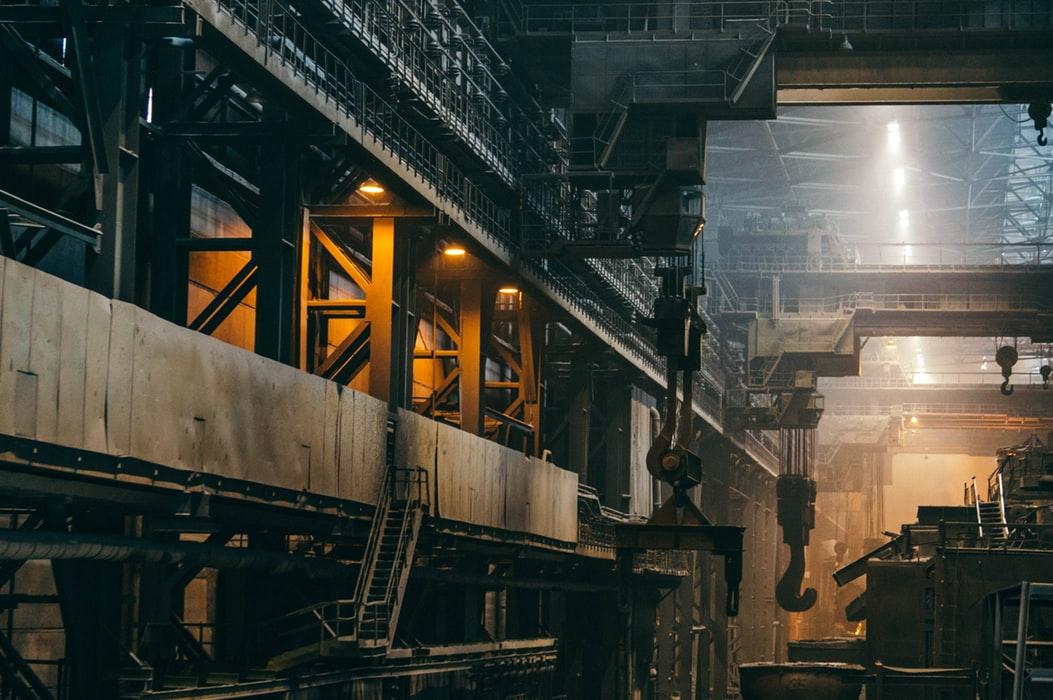Chinese investment—risky business?
Posted By Bonnie Mitchell on September 12, 2019 @ 11:57

Former US president Barack Obama characterised the message in American Factory, a new documentary produced by his company Higher Ground Productions, as a way to find common ground and move forward together [1].
American Factory [2] chronicles the purchase of a closed General Motors plant in Dayton, Ohio, by a Chinese billionaire who reopens the factory and employs 2,000 Americans in the process. It has been broadly well received. One film critic concluded [3] that the ‘film is a reminder that capitalism is always double-edged’.
However, the film carries another, more subtle double-edged message—about national security. This example can spark discussion [4] about the risk that foreign investment from China potentially poses.
Despite the American example, this risk is not limited [5] to the US, which has engaged international partners [5], including Australia, New Zealand and Japan, to cooperate on countering Chinese influence operations and certain types of investments.
Most foreign direct investment [6] is legitimate and good [7] for the economy. Indeed, Fuyao’s automotive glass factory, featured in American Factory, has been clearly beneficial [8] in revitalising Dayton’s industrial sector.
Despite the clear benefits, however, the facts show that policymakers must approach any economic engagement well-informed and clear-eyed.
Intelligence and law enforcement leaders cite China as a significant national security threat; FBI Director Christopher Wray has claimed [9] that China poses a more serious counterintelligence threat than any other country, including Russia.
Wray is not alone on this. John Demers, assistant attorney-general for national security at the Department of Justice, called China’s espionage campaign, ‘persistent, sophisticated, well-resourced, patient, and broad in scope [10]’ , and former CIA director and retired army general David Petraeus said experts assess the top security threat facing the US as ‘all China, all the time [11]’.
This is not unfounded. Economic espionage [12], in particular, has a high cost. It costs the American economy, for instance, billions of dollars annually. Other critical intelligence threats [13] cut across influence operations, critical infrastructure, supply chains and traditional espionage.
China is accelerating these espionage efforts, targeting businesses and industry, in an effort that has been described [14] as a key part of the nation’s growing power.
In addition to technological [15] and cyber espionage, China’s security services still rely on traditional [16] human intelligence operations [17] and forging interpersonal connections. Anyone in any industry is a potential recruitment target.
Indeed, Wray has told the US Senate [9] that the FBI has over 1,000 cases involving economic espionage and attempted intellectual property theft, nearly all with ties to China.
All countries must be aware of this threat. But as American Factory shows, honest and mutually beneficial foreign investment is of crucial interest. So what are governments doing to ensure risk is low, and what options do they have?
There are structures in place in some countries to minimise risk, such as the Committee on Foreign Investment in the United States [18], which reviews transactions to prevent control of a US business by a foreign person.
The committee’s efforts are having some impact [19]. New investments from China in 2018 reportedly fell 95%, primarily in the technology sector, as compared to 2016, in part due to enhanced scrutiny [19] of these transactions.
Programs such as the US’s National Counterintelligence and Security Center’s ‘Know the risk, raise your shield [20]’ provide resources to the private sector, including tips to help businesses better understand threats and how to protect themselves. Intiatives like this should be expanded across industry as a routine part of all businesses engagement with foreign entities.
State and local governments also have a key role in ensuring foreign investment doesn’t pose a risk to national security. Developing processes at the local level and scrutinising investments in regional economies through a mechanism similar to the US foreign investment committee could be a valuable option.
More generally, policymakers and businesses must examine investment through a national security lens, and every investment should be properly scrutinised.
Along with these examples, Australia’s new national security laws [21] banning foreign interference are also instructive for governments in the Asia–Pacific region. In fact, other countries are taking note of Australia’s ‘new transparency scheme’ [22].
This may become even more relevant as China shifts investment [23] to Asia as a result of the US–China trade war.
American Factory shows that the benefits of these projects can be valuable for communities, but only with this kind of scrutiny can governments accept Chinese direct investment and be sure they aren’t risking their security. A transparent and fair scrutiny process will allow states to comfortably accept Chinese investment while ensuring it is truly to the benefit of all.
Article printed from The Strategist: https://aspistrategist.ru
URL to article: /chinese-investment-risky-business/
URLs in this post:
[1] move forward together: https://www.youtube.com/watch?v=NRS0YDUf-Yc
[2] American Factory: https://www.netflix.com/title/81090071
[3] concluded: https://www.theatlantic.com/entertainment/archive/2019/08/american-factory-review-julia-reichert-steven-bognar/597067/
[4] spark discussion: https://www.cfr.org/backgrounder/made-china-2025-threat-global-trade
[5] not limited: https://www.cbc.ca/news/world/five-eyes-china-1.4860028
[6] foreign direct investment: https://www.selectusa.gov/fdi-in-the-us
[7] good: https://www.selectusa.gov/servlet/servlet.FileDownload?file=015t0000000LKSn
[8] beneficial: https://www.bizjournals.com/dayton/news/2019/06/11/fuyao-glass-americas-moraine-plant-buzzing-with.html
[9] claimed: https://www.apnews.com/42e925d24c35470d85eefe7b5dc93671
[10] persistent, sophisticated, well-resourced, patient, and broad in scope: https://fortunascorner.com/2019/08/12/how-a-former-cia-officer-was-caught-betraying-his-country/
[11] all China, all the time: https://www.nbcnews.com/politics/national-security/how-230-000-debt-linkedin-message-led-ex-cia-officer-n990691
[12] Economic espionage: https://www.dni.gov/index.php/ncsc-what-we-do/ncsc-threat-assessments-mission/ncsc-economic-espionage
[13] critical intelligence threats: https://www.intelligence.senate.gov/sites/default/files/documents/os-revanina-051518.PDF
[14] described: https://www.washingtonpost.com/opinions/the-us-must-take-action-to-stop-chinese-industrial-espionage/2018/11/04/66ccd5a6-ded2-11e8-b3f0-62607289efee_story.html
[15] technological: https://www.c-span.org/video/?c4735237/top-officials-cia-nsa-fbi-defense-intelligence-agency-testified-front-senate-intelligence
[16] traditional: https://www.washingtonpost.com/business/we-should-let-china-spy-on-us/2019/04/20/985dc970-63d1-11e9-bf24-db4b9fb62aa2_story.html
[17] operations: https://www.uscc.gov/sites/default/files/Annual_Report/Chapters/Chapter%202%2C%20Section%203%20-%20China%27s%20Intelligence%20Services%20and%20Espionage%20Threats%20to%20the%20United%20States.pdf
[18] Committee on Foreign Investment in the United States: https://home.treasury.gov/policy-issues/international/the-committee-on-foreign-investment-in-the-united-states-cfiu
[19] impact: https://www.chinalawblog.com/2019/01/new-cfius-rules-shut-down-chinese-investment-in-u-s-technology.html
[20] Know the risk, raise your shield: https://www.dni.gov/index.php/ncsc-how-we-work/ncsc-know-the-risk-raise-your-shield/ncsc-awareness-materials
[21] Australia’s new national security laws: https://www.nytimes.com/2018/06/28/world/australia/australia-security-laws-foreign-interference.html
[22] ‘new transparency scheme’: https://www.foreignaffairs.com/articles/australia/2018-07-26/australias-fight-against-chinese-political-interference
[23] China shifts investment: https://asia.nikkei.com/Economy/Trade-war/Trade-war-steers-Chinese-investment-toward-Southeast-Asia
Click here to print.